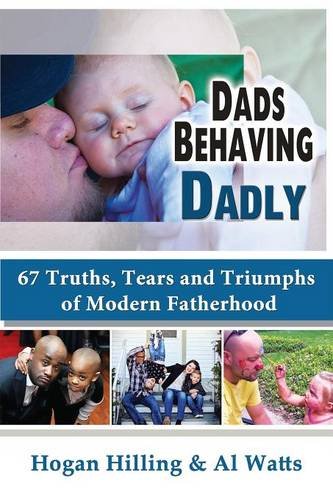I will never understand how some adults can be so void of morality that they sexually abuse children. In fact, I loathe the thought that my kids could one day fall prey to such a heinous act.
Our pediatrician surprised me several years ago when, during our then 4-year-old daughter’s check up, she said it was time we started teaching her about inappropriate touching.
On an intellectual level, I knew the doctor was right. I’ve been in the news business long enough to have reported my share of stories about children who have been abused, most often by people they know and trust. A teacher. A baby sitter. A pastor. Their own parents.
But on an emotional level, I couldn’t understand how someone can commit such an act. All I see when I look at children (mine especially) are defenseless people who need adults to watch over and protect them.
What reasonable adult could see them in any other way?
And that’s when I realize the rub, the problem with such a thought. Not all adults are reasonable. Some are downright evil.
So over the years my wife and I have seriously taken on the task of teaching our children about inappropriate touching, and how they should tell us without hesitation if anyone touches them where they shouldn’t.
It’s one of our most important roles as parents. My wife and I are in a better position than anyone to teach our children how to protect themselves against predators, and I do not appreciate anyone else trying to fill that role.
So I did not take kindly to information my 8-year-old daughter brought home from school one day a couple of months ago explaining how teachers were going to teach “personal safety.”
I knew it was going to happen. The Frederick County Board of Education decided in August 2008 to make it difficult for parents to opt out of the lesson by making them meet with the principal to explain their reasons.
How arrogant, I thought. I should not have to meet with the principal to tell him that it’s my job, not the school system’s, to teach my daughter about protecting herself from sexual abuse.
Then I thought about parents who abuse their children. Who will watch out for those kids?
The people in the best position to do that are the teachers who spend more than six hours a day with them. They know the kids better than anyone else, barring their parents, of course, and since they can’t know who will abuse their children and who won’t, they must teach the same lesson on personal safety to everyone.
Statistics from the National Center for Missing and Exploited Children are chilling: one in five girls and one in 10 boys will be sexually victimized before they turn 18, but only one in three will tell anyone.
I came to the conclusion that the school system plays an important role in protecting children against sexual predators, and decided not to make an issue out of it. After all, we’re already teaching our children similar lessons, so it may reinforce what we are telling them.
The day of the lesson came. I knew what school officials said they were going to teach, but I wanted to know what my daughter learned. Given the sensitive nature of the subject, I had to wait for the right moment to ask her, but didn’t know when that would be.
A car is a good place to have difficult conversations with children because it’s private, your kids don’t have to look at you, and you have to pay attention to the road. But we were never in the car alone long enough to have that conversation. I had to figure out the next best place and time to bring up the conversation.
Then it hit me, just as the moment was happening.
We let our daughter stay up until 9:30 on Friday and Saturday nights, an hour or so later than her younger brother. (Please don’t tell him. I don’t want to deal with a jealous 5-year-old.)
Sometimes we play silly games, and other times we watch Food Network or Animal Planet while eating an Italian ice. (Yeah, please don’t tell her brother that either. His time will come.)
She loves this time alone with us. She feels like a big kid because she can do something her brother can’t, and she doesn’t have to compete with anyone for our attention.
She feels safe.
So on a recent Friday night, I ask her.
“Sweetheart, remember that lesson on personal safety?” I ask between bites of Italian ice, Food Network on in the background.
“Yeah,” she replied without missing a beat.
“What did they teach you?”
“The difference between good touching and bad touching.”
“And what’s the difference?” my wife asked.
Again, my daughter answered correctly without missing a beat. We might as well have been talking about the weather.
“What if someone tries?”
“I tell a responsible adult.”
“And who’s a responsible adult?”
“Like you or Mommy, or my teacher or the principal.”
“And what if someone tells you that you’ll get in trouble if you tell?”
“Oh, you guys would never get mad at me for that.”
“That’s right. They would get in trouble, not you.”
“I know.”
I smiled. She never looked up from her Italian ice, but I know she learned a lesson appropriate for her age.
And I did, too. While I still believe it’s my job to teach my children ways to protect themselves against sexual abuse, it’s OK for school officials to fill the gap for children whose parents do not.
This is a re-post of a column that first appeared in The Gazette on April 29, 2010.


